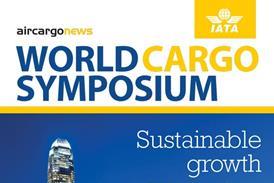THE International Air Transport Association (IATA), challenged Australia to take a leadership role in three areas that are critical to aviation: security, environment and liberalisation. The call came from Giovanni Bisignani, IATA’s director general and chief executive officer in a speech to the Australian National Aviation Press Club in Sydney.
“Oil prices are re-shaping the air transport industry. In recent months at least 25 airlines have gone bust and airlines could lose as much as US$6.1 billion this year. While prices have come down from their peak, oil is still trading above $110 per barrel (Brent). Fundamental changes are critical,” said Bisignani. “Australia’s National Aviation Policy Review is a golden opportunity for Australia to take a leadership role and drive change in security, environment and liberalisation.”
Security: “Aviation is much more secure today than in 2001. But the global system remains a US $5.9 billion uncoordinated mess because governments are not thinking or acting globally. Decisions driven by fear cannot build a more secure global air transport system. Governments must take a risk-based approach to security and harmonise with global standards,” said Bisignani. Specifically, Bisignani highlighted Australia’s requirement for screening at the gate at the last port of call as extra-territorial duplication resulting in added cost and confused passengers.
Environment: “The Kyoto protocal gave the International Civil Aviation Organisation the responsibility to deliver a global emissions trading scheme (ETS). As a signatory to Kyoto, Australia has a responsibility to defend it. That means challenging Europe on its unilateral ETS. What right does Europe have to charge an Australian plane flying from Asia to Europe for emissions over Afghanistan?” asked Bisignani.
“Auctioning permits would set a very bad precedent. It raises several questions. With a focus on economic measures, where are the operational efficiencies? And why punish the good? Carbon intense industries with less impressive records of improvement, are being given breaks that airlines are not. The impact the competitiveness of Australian tourism must also be taken into account. Anything that makes an Australian vacation disproportionately expensive is an incentive for tourists to go elsewhere. To maintain a level playing field, we need to keep focused on global solutions,” said Bisignani.
Commercial Freedoms: “Australia has the most liberal domestic market. It can play a key role in helping to modernise the antiquated 60-year old bilateral system that governs international air transport. In this time of crisis, the bilateral system with its restrictions on ownership, must change. It’s time to move from the world of flags and politics to brands and business. Who cares who owns an airline as long as it is safe and provides efficient service? I believe that we can work through the bilateral system to allow airlines to do business like any other business with governments ensuring a level playing field. Governments must also effectively regulate safety, security, monopoly suppliers and environmental standards,” said Bisignani.
Following the Association’s Istanbul Declaration in June, IATA is facilitating discussions among progressive governments at the Agenda for Freedom Summit to take place in Istanbul in late October.
“Thirty two million people and $3.5 trillion in business, depend on an air transport industry that is safe, secure, environmentally responsible and financially sustainable. In this perfect storm of rising costs and falling demand growth, the courage to change will be the key to survival and to fulfilling this important responsibility,” said Bisignani.




